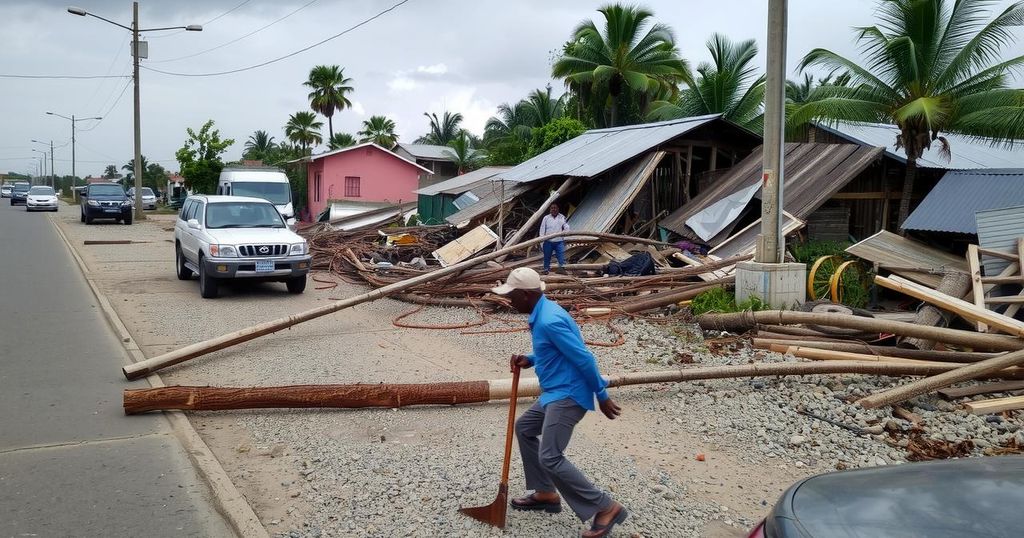Death Toll In Mozambique Revised to 94 Following Cyclone Chido’s Destruction

Mozambique reports a death toll of 94 from Tropical Cyclone Chido, which devastated Cabo Delgado, destroying 110,000 homes. The cyclone impacted Mayotte, where 35 deaths have been reported, and moved into Malawi, causing further casualties. Human-driven climate change is implicated in the cyclone’s intensity.
Mozambique has officially raised its death toll from Tropical Cyclone Chido to 94, following the extensive destruction left in the cyclone’s wake. This revision comes one week after the storm devastated multiple areas, particularly impacting the northern province of Cabo Delgado with winds exceeding 260 kilometers per hour and resulting in 250 millimeters of rain in just one day. The cyclone also severely affected housing, destroying approximately 110,000 homes throughout the country. As rescue efforts continue, the cyclone’s intensification is attributed to climate change, as noted by experts.
In the French territory of Mayotte, which also suffered from Cyclone Chido, the local government has announced a temporary death toll of 35, along with 2,500 injuries. However, concerns remain over undocumented migrants residing in shantytowns, with predictions of a potentially higher death count. Following the disaster, controversial remarks made by French President Emmanuel Macron during his visit drew criticism from political factions in France. He remarked, “If this was not [part of] France, you would be 10,000 times deeper in the sh*t,” leading to a backlash from left-wing politicians.
In addition to the losses in Mozambique and Mayotte, Cyclone Chido continued its path into Malawi, where it caused the death of at least 13 individuals and left nearly 30 injured, according to the Malawian disaster management agency. Current assessments reveal that the cyclone’s impact is particularly severe in Mozambique, amid ongoing political unrest following a contentious election, which has already resulted in at least 130 fatalities due to related protests against President Daniel Chapo’s administration.
Cyclone Chido forms part of a series of devastating weather events that have increasingly affected Southern Africa, particularly as climate change escalates the severity and frequency of such phenomena. Tropical Cyclone Chido reached a category four intensity, causing devastation across several regions, including Mozambique and the French island of Mayotte. The storm has highlighted not only the vulnerability of areas prone to natural disasters but also the systemic issues arising from climate change, political unrest, and the socioeconomic conditions that exacerbate the fallout from such calamities.
The aftermath of Cyclone Chido underscores the profound humanitarian crisis unfolding in Mozambique and the surrounding regions. With a confirmed death toll of 94 in Mozambique and ongoing assessments in Mayotte and Malawi, the cyclone’s impacts are palpable. As rescue and recovery efforts proceed, the links between climate change and extreme weather events like Cyclone Chido have become a critical focal point for both local and international entities. Addressing these challenges necessitates a comprehensive approach both in response to immediate needs and in long-term planning.
Original Source: www.abc.net.au






